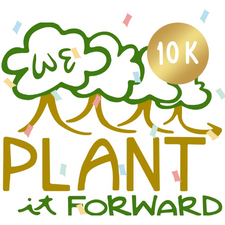The Basics of Water Conservation
Banner Image from: Photo by Amritanshu Sikdar on Unsplash
What is water conservation?
Water conservation is the practice of using water efficiently and reducing the amount of water used in an unnecessary way.
Why do I care?
Everyone needs to care about water conservation because the amount of freshwater on Earth is limited. According to National Geographic, “Less than 3 percent of the water found on Earth is freshwater….That leaves only about 1 percent of Earth’s freshwater as readily available for human use.” So wasting water can be detrimental to our water sources because it is a limited resource subject to change with varying environmental conditions. Reducing the amount of water you use at home can reduce your water bill and save you money.
“Save Water” Image from https://flyclipart.com/water-conservation-water-efficiency-reclaimed-water-tap-water-free-runoff-clipart-259037
What can I do to help?
There are many simple ways to help conserve water:
Turning off faucets when not in use
Watering plants in the early morning or late afternoon
Making sure that when you run the dishwasher and washing machine that it is full and on the efficiency setting if it has one.
Installing new low-water usage dishwashers, washing machines, low-flow toilets, shower heads, and faucets. Look for the “ENERGY STAR® symbol
Image from: https://acmemud.specialdistrict.org/water-conservation
“ENERGY STAR® is the government-backed symbol for energy efficiency,
providing simple, credible, and unbiased information that consumers and businesses rely on to make well-informed decisions”. This symbol that can be found on many different appliances shows that they are energy efficient and that the EPA has verified their reliability.
Image from: https://www.energystar.gov/about?s=footer
Install a Water Catchment System
on the WPiF website there is an entire page on how to make a rain barrel! The webpage includes video and written instructions and a parts list. We Plant it Forward holds a couple of rain barrel workshops a year. Contact us to find out about our next rain barrel workshop
Nature Recycles water:
The Water Cycle is how nature recycles water, steps including; evaporation, transpiration, sublimation, condensation, precipitation, interception, infiltration, and collection. Disrupting the natural water cycle will put more pressure on how we get our limited supply of fresh water. So, by collecting water and using it on gardens and lawns it will allow the water to seep into the ground slowly letting the water back into aquifers underground. .
What is North Carolina doing to help?
There are many municipalities in North Carolina that encourage residents to conserve water through rebates and water bill credits. Here we list a few. To find more do an internet search for “water conservation programs in North Carolina” or in whatever state you are from.
In the city of Durham, there is a rebate for buying a high-efficiency, 1.28-gallon toilet called the “WaterSense High-Efficiency Toilet (HET) Rebate Program”. Through this rebate program, Durham, NC gives up to $100 per high-efficiency toilet that has been bought within the past year, with proof. The rebate will be applied to the qualified homeowner's water bill.
Another City in North Carolina that has a similar program in Fayetteville. Their program if you replace your toilet is replaced with a high-efficiency, 3.5 gallons per flush. Fayetteville will “the opportunity to earn a bill credit of 25% of the purchase price of each toilet” For one toilet they will offer you $75 and up to $225 for three toilets.
Hendersonville also has a few different programs for toilets, washing machines, irrigation systems, and customer-side shut-off valves. The toilet program offers rebates up to 15% of the price ranging from $25-100, high-efficiency is qualified as 3.5 gallons. The washing machine program also offers a 15% rebate on the purchase price ranging from $75-150, the ENERGY STAR® seal of approval. For the irrigation system controllers, the town is offering to rebate up to 50% of the purchase price for homes and businesses. The city of Hendersonville will offer rebates up to $300 to residential customers who purchase and install customer-side water shutoffs.
By instituting this incentive program the city shows the importance of saving water in homes not only for the environmental impact but also for the financial impact it can have. If you live in a city or town that does not have this kind of program, I encourage you to talk to your local leaders and see if your leaders would institute a similar program in your community.
Water conservation organizations:
We Plant it Forward is a non-profit organization that aims to preserve and restore the natural environment for future generations.
Charity Water is a non-profit organization that helps to bring clean water to developing countries.
Water use it wisely is a water conservation campaign that raises awareness on how to use household objects to save water.
Here is a national resource you can check to see if there is a rain barrel workshop near you: https://www.rivernetwork.org/connect-learn/events-webinars/
Additional sources for water-saving products:
https://www.conservastore.com/product-category/save-water/ This is a website with conservation in mind. They have many products from different manufacturers that will help you save money and the environment. You can also do a keyword search for “eco-friendly” products at your local home improvement store.
References:
“All about the Water Cycle - How Does It Work?” The Berkey, Berkey Water Filters, https://theberkey.com/pages/all-about-the-water-cycle.
“Freshwater Resources.” National Geographic Society, National Geographic, 20 May 2022, https://education.nationalgeographic.org/resource/freshwater-resources.
“Save Water Archives.” Conserv, https://www.conservastore.com/product-category/save-water/.
“Toilet Rebate Program.” Toilet Rebate Program | Durham, NC, City of Durham, https://www.durhamnc.gov/1102/Toilet-Rebate-Program.
“What Is Energy Star.” ENERGY STAR, US EPA and US Department of Energy, https://www.energystar.gov/about?s=footer.






